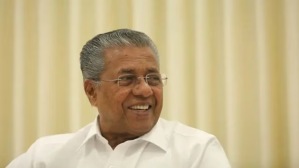What was SC’s Pankaj Bansal ruling in 2023, which paved the way for release of NewsClick editor Prabir Purkayastha?
In 2023, the court underlined the safeguards against arrests made under the PMLA. In Purkayastha's case, the court said these safeguards also apply to the UAPA, another stringent special legislation
 Prabir Purkayastha, founder-editor of NewsClick, was arrested on October 3, 2023. (YouTube videograb/NewsClick)
Prabir Purkayastha, founder-editor of NewsClick, was arrested on October 3, 2023. (YouTube videograb/NewsClick)In finding the arrest of NewsClick founder editor Prabir Purkayastha invalid and ordering his release on Wednesday (May 15), the Supreme Court Bench of Justices B R Gavai and Sandeep Mehta relied on the 2023 ruling of the top court in Pankaj Bansal vs. Union of India. What was this case and what did the court rule?
The Pankal Bansal ruling
On October 3, 2023, a Bench of Justices A S Bopanna and Sanjay Kumar held that “to give true meaning and purpose to the constitutional and the statutory mandate of Section 19(1) of the [Prevention of Money Laundering Act (PMLA)] of 2002 of informing the arrested person of the grounds of arrest,…it would be necessary, henceforth, that a copy of such written grounds of arrest is furnished to the arrested person as a matter of course and without exception”. (More on Section 19(1) below)
The court directed the release of Pankaj Bansal and Basant Bansal, directors of the Gurgaon-based realty group M3M, who were arrested by the Enforcement Directorate (ED) on June 14, 2023 in a money-laundering investigation linked to a bribery case against a former special judge.
Safeguards against arrest
The ruling allowed for safeguards against arrests made under the stringent PMLA.
The ED’s record on providing the grounds of arrest to the accused in writing had been inconsistent. These grounds were often conveyed orally, or the accused were allowed to read the grounds only in the presence of officials. This hampered the ability of the accused to come up with an adequate or informed defence, especially in cases where these grounds were extensive.
Criticising the ED’s style in this case, the SC said, “Being a premier investigating agency charged with the onerous responsibility of curbing the debilitating economic offence of money laundering…, every action of the ED…is expected to be transparent, above board and conforming to pristine standards of fair play in action.”
The court said the ED is “mantled with far-reaching powers under the stringent Act of 2002”, and it is “not expected to be vindictive in its conduct and must be seen to be acting with utmost probity and with the highest degree of dispassion and fairness”.
It observed that “the facts [of the case] demonstrate[d] that the ED failed to discharge its functions and exercise its powers as per these parameters”.
Section 19(1) of the PMLA
Section 19 deals with the ED’s power to arrest.
Under Section 19(1), if an ED official has “reason to believe…that any person has been guilty of an offence punishable under this Act, he may arrest such person”.
However, this Section also says that the “ reason for such belief [must] be recorded in writing”, and the arrested person “shall, as soon as may be”, informed “of the grounds for such arrest”.
Section 19(3) says that “Every person arrested under sub-section (1) shall, within twenty-four hours, be taken to a Special Court or Judicial Magistrate or a Metropolitan Magistrate” with jurisdiction.
In Purkayastha’s case, the court went a step further and said the mandate to supply the accused with the grounds of arrest will also apply to persons arrested under the UAPA.
- 01
- 02
- 03
- 04
- 05






































